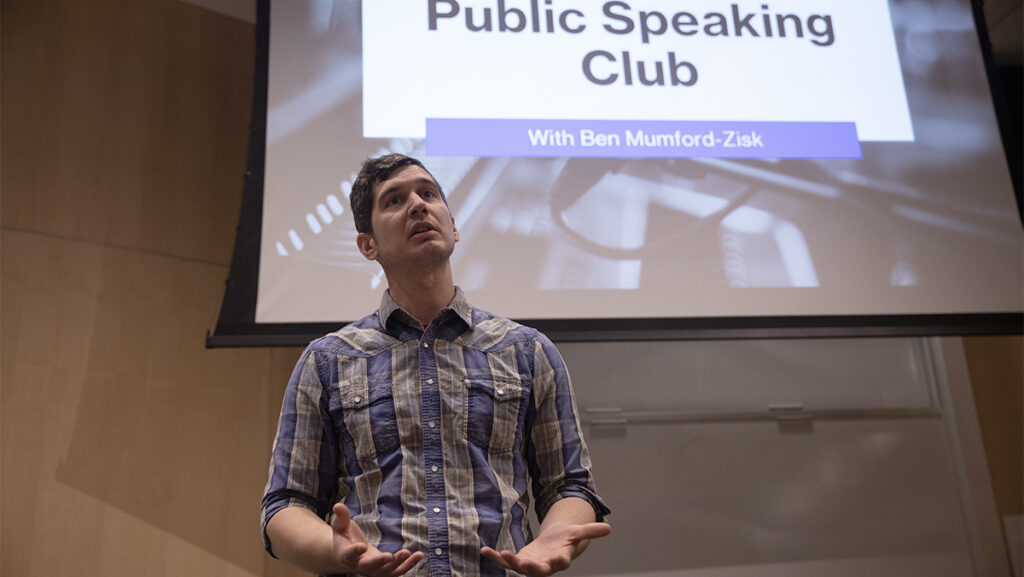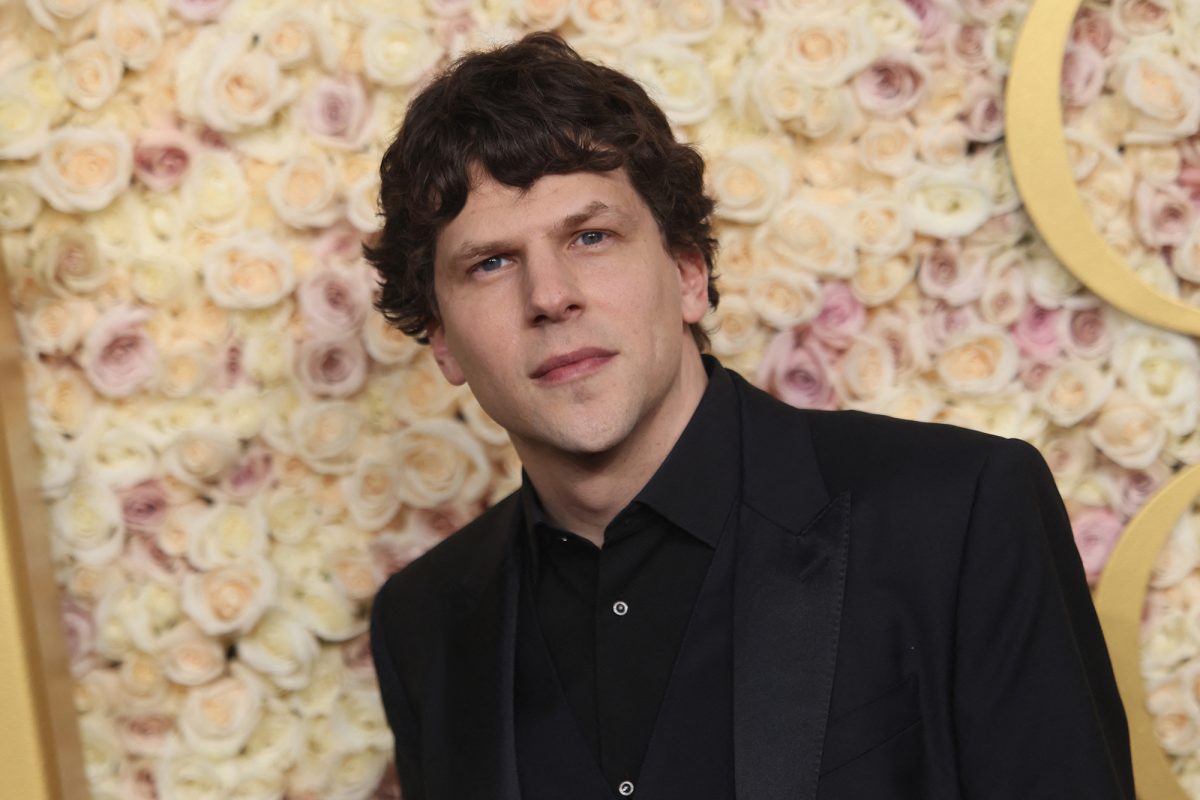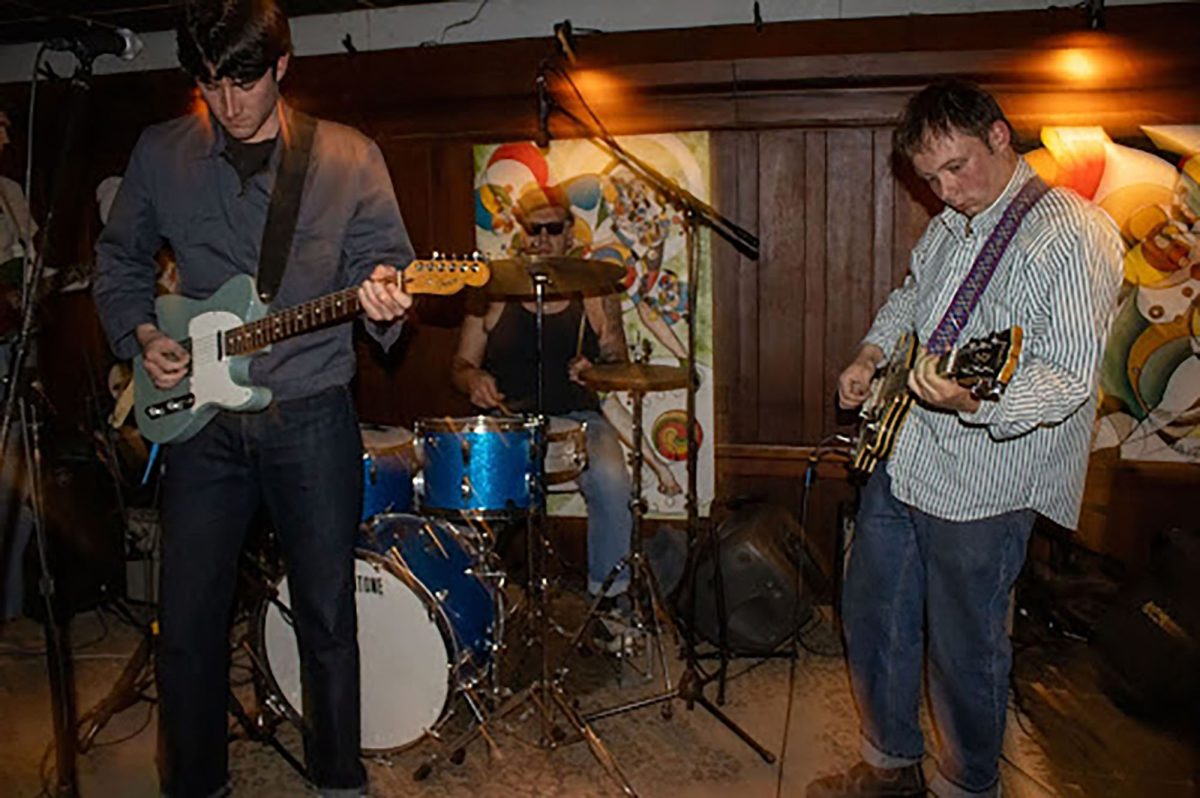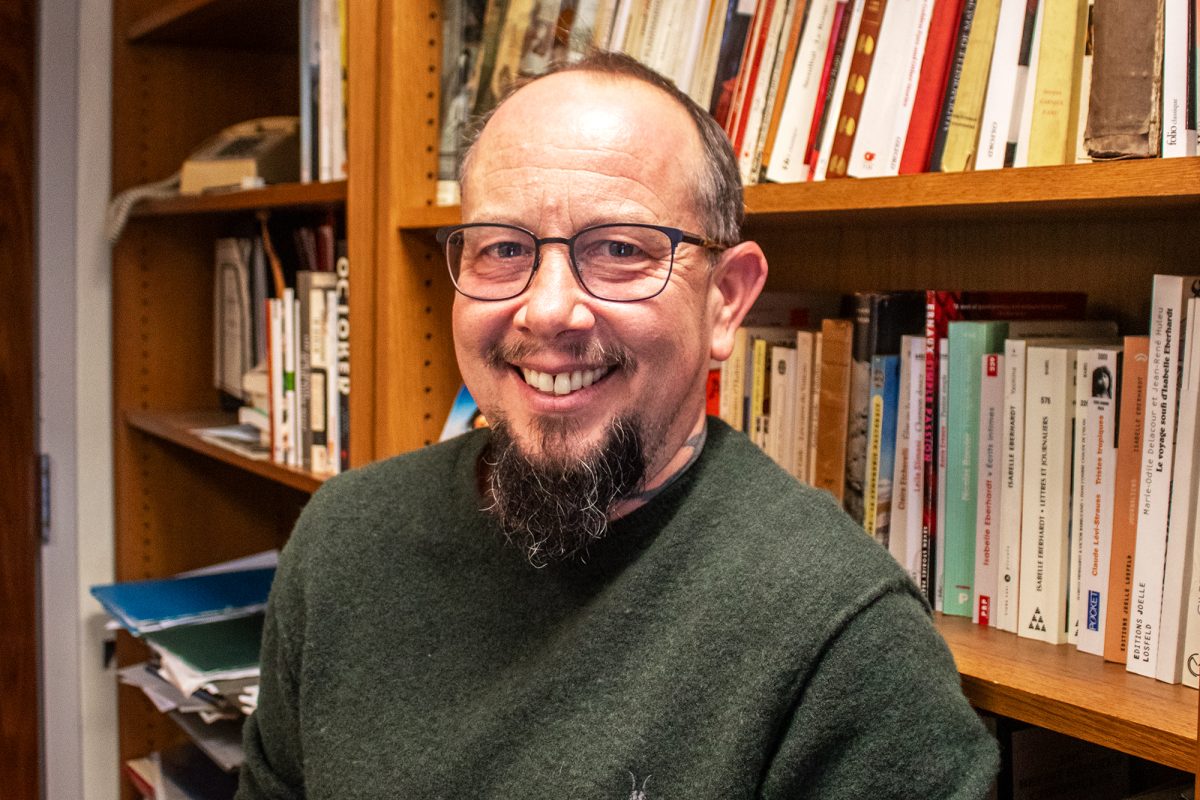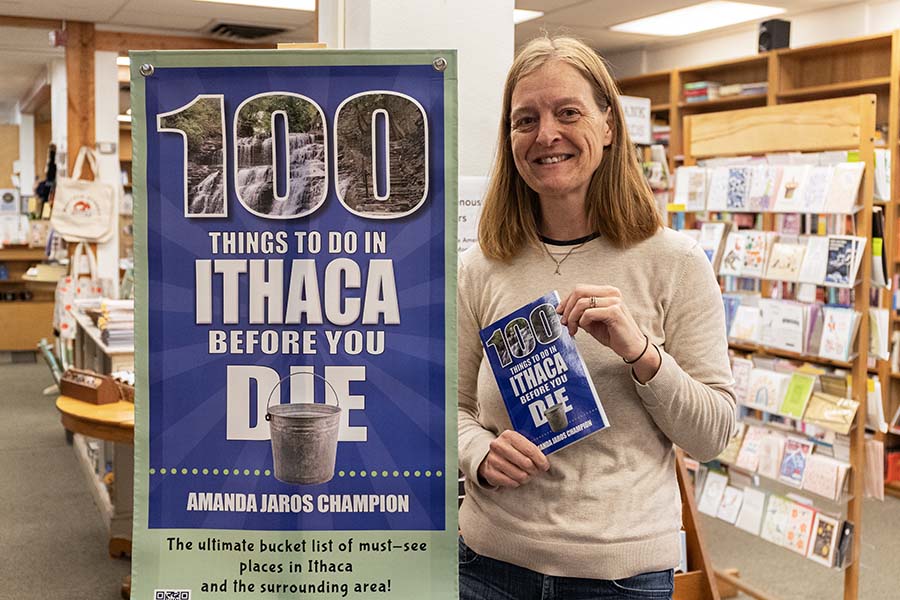Ben Mumford-Zisk, manager of the Information Technology Student Employment Program, began a public speaking club in March 2023 with the intention of helping students practice oral communication skills to better prepare for post-graduate jobs. The club meets every Thursday from 5 to 6:30 p.m. in Textor 101.
Co-Life and Culture Editor Matt Minton spoke with Mumford-Zisk about what led to the creation of the club and the importance and application of public speaking in everyday life.
This interview has been edited for length and clarity.
Matt Minton: What was your initiative for starting the Public Speaking Club?
Ben Mumford-Zisk: In helping students prepare, I’ve had several [people] voice a general fear of public speaking and lack of comfort with that kind of exposure. It seems to be a combination of the normal [lack of training] to do public speaking. Then we also have an entertainment culture these days and just a general social culture that is a little bit more isolated than it has been in the past. So people are getting fewer opportunities to organically practice public speaking with a group of friends, in a classroom, things like that. … Obviously, during the pandemic, we all got very used to interacting through screens as we are now. And not only does that get you used to a certain level of solitude when you’re making statements or speeches, it also brings us to do things that are incorrect in person. … That knowledge coupled with just the general importance of public speaking ability prompted me to want to put together a club, or really a classroom environment, where students could just get together and practice in a low-stakes environment. A large part of comfort with public speaking is just being calm in front of a group and being okay with not sounding perfect or knowing exactly what’s coming next. So if you put someone in a low-stakes environment with your friends, you’re going to talk to us for a minute. And they get used to what happens to them as they speak.
MM: What does the layout of a typical meeting look like?
BM-Z: I’m modeling this after Toastmasters, an international public speaking instruction club where people get together and they’re either assigned a topic or they come in with a topic. … The bread and butter of Toastmasters is that you’ll get in and give a five-minute speech and then you will get graded on it. Not graded like pass-fail, but, you said ‘Umm’ 14 times and you tend to say ‘Umm’ at the beginning of paragraphs. You kept your left hand in your pocket the whole time and it completely cut off your left side. … It’s both what you are saying and how you are saying it. And then at the end, we all talk about what you saw. It’s also going to train people how to give good feedback and how to feel comfortable giving good feedback.
MM: Why do you think public speaking is important?
BM-Z: I think most of the people that I know have some reason for public speaking about once every three months at least. … It’s a personal skill as well. Birthday parties come up and you want to say something to a group. There’s a wedding, you want to say something to a group. … But the big reason I think it’s so important for students as they’re about to graduate, but also specifically students in the current generation who’ve just had lockdown happen, is that you’ve seen a massive uptick in certain social media technologies that result in more isolation. There’s less practice to be able to speak and communicate effectively. … [Practicing public speaking] allows me to be more clear with myself and also not be completely on the spot when it’s my turn to speak and therefore be able to better advocate for myself in, say, [during] a hiring interview asking for a higher salary. I can make my case more easily.
MM: Where are you hoping the club will go moving forward?
BM-Z: I’m largely looking at my format and how students respond to it. Going forward is tricky. I would like to do something that would be a regular meeting but not a required meeting for people. I want it to be something you can come to or not in a given week or two weeks so that there isn’t pressure for you to come every time. It really needs to be ongoing — semester-long or year-long.
MM: What advice would you give to students who may be apprehensive about public speaking?
BM-Z: I would encourage people to get out and do stuff like this, even if it’s not through IC or something that I put together. There are a lot of opportunities for public speaking practice … It might be one of the skills that I use the most commonly. I have a lot of social anxiety and I tell people that and they’re always surprised. ‘You’re so comfortable in these places.’ And I’m like, ‘I’m lying.’ I have practiced this for years. … But I get so nervous in social situations, I get terrified. And this is something that will allow you to feel better in those situations.


